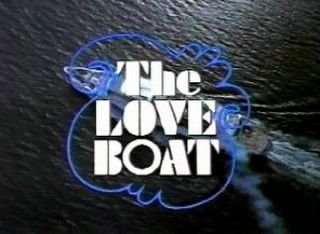Christian Carnival CXVIII

This week's Christian Carnival is up at Rev Ed's place, Attention Span, with a clever theme: the Christian Carnival Cruise.
Rebecca at Rebecca Writes caught my attention with this post: Such a Worm!
I think Rebecca gets the basic issue right in the last two paragraphs. Nonetheless, too much of Christianity today might be accused of "feel-good theology." We bind sound theology, which teaches the absolute sovereignty of God and the idea that we do have value, because He created us and sent His son to die for our sins, with less-sound modern concepts of self-esteem. We may have bound ourselves to the idea that a large amount of self-esteem is a good thing (forgetting, for instance, that Stalin and Mao probably felt pretty good about themselves), and forgetting that the "T" in the "TULIP" of doctrine stands for "total depravity." We are worse than worms in the sense of being born into sin and being utterly unable to effect our own salvation. God gives the latter to us as a free gift (it's our choice whether to accept it or not) and thus what value we have derives from Him, both in our origins as His creatures, and in our lives, as His bride and visible body.
I'm not advocating hellfire and brimstone teaching and preaching -- that is going much too far the other direction -- but it doesn't hurt to remind ourselves that we are nothing without Him.
Thus ends today's lesson in Presbyterian doctrine.
Monk
Rebecca at Rebecca Writes caught my attention with this post: Such a Worm!
If you remember, the second question in Monday's post, That's a Good Question, was about a change in the hymn book used at my church to the words of Isaac Watt's hymn Alas! And Did My Saviour Bleed, specifically the removal of the phrase such a worm as I, replacing it with sinners such as I. Since then I've found out that some versions of this song don't even mention sin at all, but have replaced the worm phrase with such a one as I.
I'd suspected that the motive behind the change might be theological, since the very first time I experienced someone changing these words was in Bible college, when the student leading the singing in the chapel service had us change those particular words because he objected to the picture of humankind that the worm image painted. This particular student was big on self-esteem, and the problems - at least as he saw it - that a lack of self-esteem created in individuals within the Christian community.
Chris's comment on that first post, with his mention of the term worm theology, helped confirm my suspicion. It was a term that I was unfamiliar with, but a Google search revealed that worm theology is a derogatory term used for Calvinism in general, and the doctrine of total depravity specifically. I found a Missouri Synod Lutheran article bemoaning the removal of any statements referrencing "the 'corrupted-nature' language of Luther and the Formula of Concord" from new Lutheran liturgy. This change, says the author
..was undoubtedly influenced by critiques caricaturing this as "worm theology," but the point of the older liturgies was to acknowledge not only that we have sinned but that we are sinners.
Whatever you think of worm theology, you can't get around the fact that the Bible itself uses the image of a worm in reference to human beings in several places, for instance Job 25: 4-6, Isaiah 41:14, and Psalm 22:6. The image isn't used to deny our value as beings made in God's image, but rather to show that in comparison to God, who is righteous, perfect, eternal, and all-powerful, etc, we are like insignificant worms.
Isaac Watts uses this scriptural image to paint a similar picture in Alas! And Did My Saviour Bleed. In comparison to the infinite value and perfection of the Sacred Head, we are such worms! And yet, in the glorious act of God's Son,.....the Sacred Head was devoted - my Sovereign bled and died - for such a worm.
I think Rebecca gets the basic issue right in the last two paragraphs. Nonetheless, too much of Christianity today might be accused of "feel-good theology." We bind sound theology, which teaches the absolute sovereignty of God and the idea that we do have value, because He created us and sent His son to die for our sins, with less-sound modern concepts of self-esteem. We may have bound ourselves to the idea that a large amount of self-esteem is a good thing (forgetting, for instance, that Stalin and Mao probably felt pretty good about themselves), and forgetting that the "T" in the "TULIP" of doctrine stands for "total depravity." We are worse than worms in the sense of being born into sin and being utterly unable to effect our own salvation. God gives the latter to us as a free gift (it's our choice whether to accept it or not) and thus what value we have derives from Him, both in our origins as His creatures, and in our lives, as His bride and visible body.
I'm not advocating hellfire and brimstone teaching and preaching -- that is going much too far the other direction -- but it doesn't hurt to remind ourselves that we are nothing without Him.
Thus ends today's lesson in Presbyterian doctrine.
Monk



